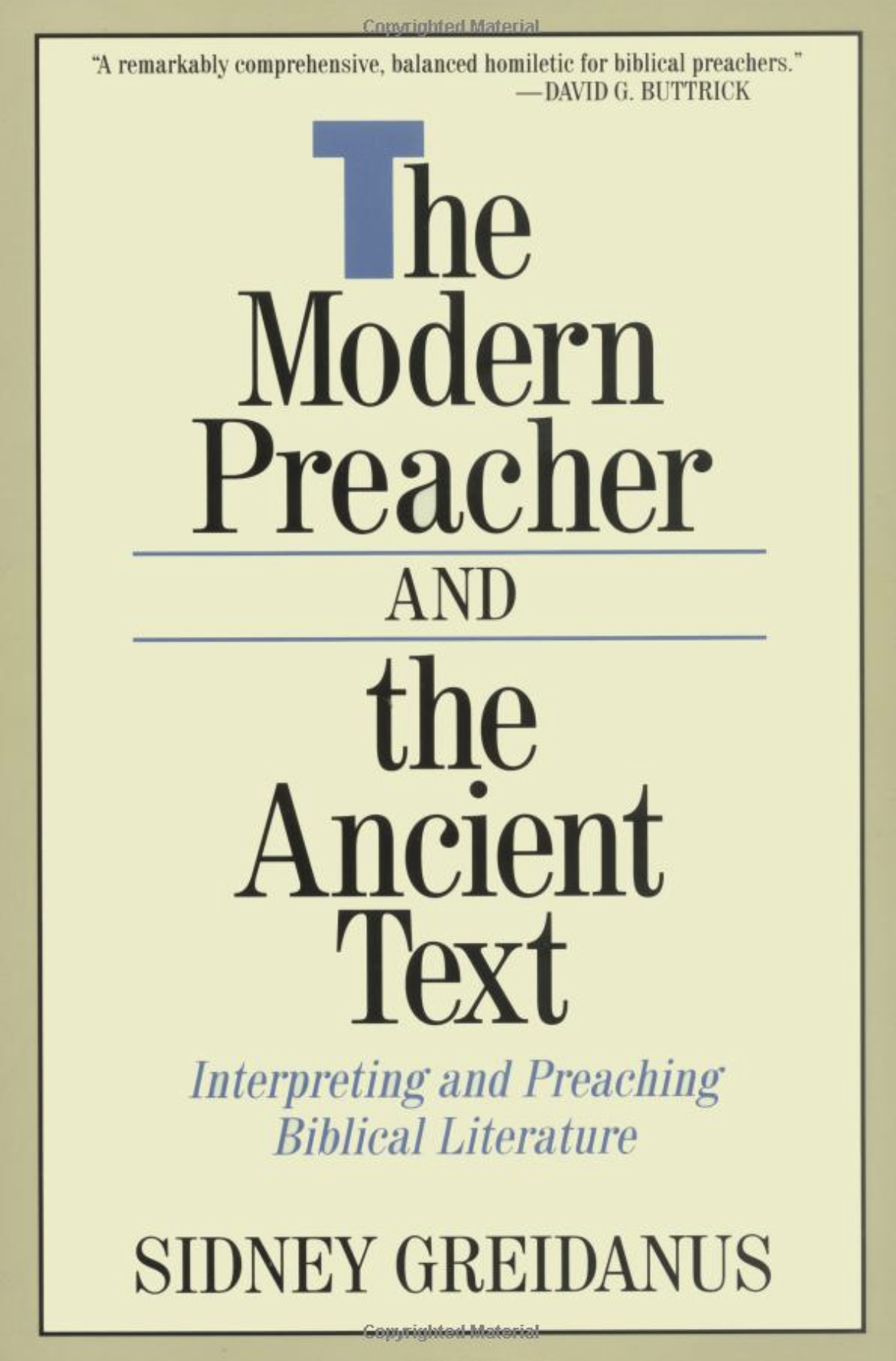Lesson 8 | Teaching genres
A Bible-shaped word in a Bible-like way
Teaching the text as the text teaches
Let us now consider a conception of teaching style that is quite rare, but most certainly worth our attention. The idea is that the style of our teaching ought be inspired by the style and genre of the particular text we are teaching. For example, if we are teaching from Luke, our style should feel like “an orderly account” of “the things that have been accomplished” in the life of Jesus (Luke 1:1-4). Sidney Greidanus expresses it well.
Preaching is truly biblical when (a) the Bible governs the content of the sermon and when (b) the function of the sermon is analogous to that of the text. In other words, preaching is biblical when it imparts a Bible-shaped word in a Bible-like way.
Sidney Greidanus
Don Wardlaw similarly decries the ‘assumption that preaching as such seems to mean finding sensible, orderly things to say about scriptural texts, rather than letting those texts say things their own way.’ Wardlaw continues: ‘When preachers feel they have not preached a passage of Scripture unless they have dissected and rearranged that Word into a lawyer's brief, they in reality make the Word of God subservient to one particular, technical kind of reason.’
Sidney Greidanus
 The Modern Preacher and the Ancient Text: Interpreting and Preaching Biblical Literature
The Modern Preacher and the Ancient Text: Interpreting and Preaching Biblical Literatureby Sidney Greidanus
Both quotations above come from this book
Another way to put it is that we ought to do what the text is doing. If the text is telling a story, then so ought we. If the text is exhorting us to repent from our sin, then we should not use our teaching to just inform people of this exhortation—we ourselves ought to exhort!
A few examples
This is a profound suggestion, but what does this look like in practice?
O foolish Galatians! Who has bewitched you? It was before your eyes that Jesus Christ was publicly portrayed as crucified.
Galatians 3:1
The books of Galatians, and 1 Corinthians are filled with exasperated language. Clearly, Paul was quite upset, and so when we are teaching on verses like the one above, we should not sound like an academic commentary:
The Greek word behind the English foolish is ἀνόητος. This word is found six times in the New Testament and describes both people of disrepute and those who engage in decision-making which is not well thought out. It is most certainly a negative term and clearly demonstrates to us that the Galatians are not to be our example on the issues Paul is discussing...
While these words are accurate in terms of the content, they give no credence to the tone of the text. Instead, we should probably be willing to get a little upset ourselves, and sound more like the text itself:
Don't be dumb! We are Christians and have learned the centrality of the gospel. Yet there are times in which we flirt with doctrines which belittle the Cross and shift our trust onto ourselves. No! This is lunacy! ...
Behold Behemoth, which I made as I made you; he eats grass like an ox.
Job 40:15
As God answers Job in the end of the book that bears his name, the Lord spends dozens of verses describing the glorious, poetic wonder of natural creation in order to show Job how small he is and how little he knows. Should not our aim be the same when we teach this text and others like it? That aim is not achieved through presenting an analysis of the chosen animals and descriptives. Certainly in our preparation, we should analyze what is going on in every verse. But when we teach it, the message should come across as “Behold!”
Louie Giglio demonstrate this sort of idea with a call to gaze on the glories in the skies.
The style question we must answer
Should not our teachings on historical narrative contain a story-telling style? If our text is poetry, should we not make some extra efforts to teach it with language that is pleasing in both content and rhythm? When teaching the prophets, perhaps our hearers should be squirming a bit in their chairs—for that is what piercing, prophetic Scripture does. Would it not make sense for our teachings on Proverbs to be filled with God-centered wisdom, and our teachings on Ecclesiastes with God-centered desperation?
Get the point? If true, this is paradigm-altering for our teaching. Thus we must test it out. To this end we turn in the next step.